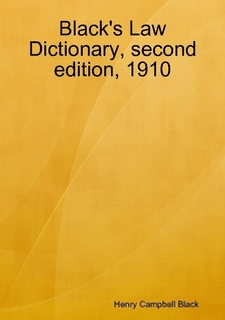Old; that which has existed from an indefinitely early period or which by age alone has acquired certain rights or privileges accorded in view of long continuance.
—Ancient deed. A deed 30 years old and shown to come from a proper custody and having nothing suspicious about it is an "ancient deed" and may be admitted in evidence without proof of its execution. Havens v. Seashore Land Co., 47 N. J. Eq. 365, 20 Atl. 497 ; Davis v. Wood, 161 Mo. 17, 61 S. W. 695,
—Ancient demesne. Manors which in the time of William the Co.nqueror were in the hands of the crown, and are so recorded in the Domesday Book. Fitzh. Nat. Brev. 14. 56; Baker v. Wich, 1 Salk. 56. Tenure in ancient demesne may be pleaded in abatement to an action of ejectment. Rust v. Roe, 2 Burr. 1046. Also a species of copyhold, which differs, however, from common copyholds in certain privileges, but yet must be conveyed by surrender, according to the custom of the manor. There are three sorts:
(1) Where the lands are held freely by the king's grant;
(2) customary freeholds, which are held of a manor in ancient demesne, but not at the lord's will, although they are conveyed by surrender, or deed and admittance;
(3) lands held by copy of court-roll at the lord's will, denominated copyholds of base tenure.
—Ancient house. One which has stood long enough to acquire an easement of support against the adjoining land or building. 3 Kent, Comm. 437; 2 Washb. Real Prop. 74, 76. In England this term is applied to houses or buildings erected before the time of legal memory, (Co.oke, Inch Acts. 35, 109.) that is, before the reign of Richard I., although practically any house is an ancient messuage if it was erected before the time of living memory, and its oriein cannot be proved to be modern.
—Ancient lights. Lights or windows in a house, which have been used in their present state, withbut molestation or interruption, for twenty years, and upwards. To these the owner of the house has a right by prescription or occupancy, so that they cannot be obstructed or closed by the owner of the adjoining land which they may overlook. Wright v. Freeman, 5 Har. & J. (Md.) 477; Storv v. Odin, 12 Mass. 160, 7 Am. Dec. 8i.
—Aucieut readings. Readings or lectures upon the ancient English statutes, formerly regarded as of great authority in law. Litt. § 481: Co. Litt. 280.
—Ancient rent. The rent reserved at the time the lease was made, if the building was not then under lease. Orby v. Lord Mohun. 2 Vem. 542
—Ancient serjeant. In English law. The eldest of the queen's Serjeants.
—Ancient wall. A wall built to be used, and in fact used, as a party-wail, for more than twenty years, by the express permission and continuous acquiescence of the owners of the land on which it stands. Eno v. Del Vecchio, 4 Duer (N. Y.) 53, 63.
—Ancient water-course. A water-course is "ancient" if the channel through which it naturally runs has existed from time immemorial independent of the quantity of water which it discharges. Earl v. De Hart, 12 N. J. Eq. 280. 72 Am. Dec. 395.
—Ancient writings. Wills, deeds, or other documents upwards of thirty years old These are presumed to be genuine without express proof, when coming from the proper custody.
Definition of Ancient
Advertisement
Definitions from Black's Law Dictionary: 2nd Edition and Ballentine's Law Dictionary as are available for each term in each dictionary.
-
Black's Law Dictionary: 2nd Edition
